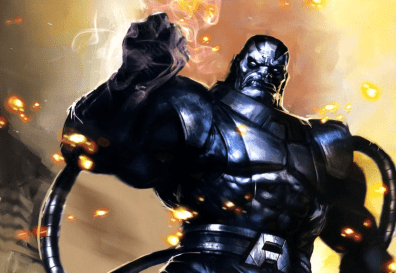You can’t watch television, play a video game, or go to the movies these days without being served image after image of worlds (often but not always our own) that have ended. Post-Apocalyptic as a genre used to immediately call to mind Mad Max Beyond Thunderdome, with its barren landscape, skeletal machinery, and human depravity. These days, there is a veritable buffet of possible futures out there to pick from. Between The Hunger Games and The Maze Runner, out today, the future has never looked hungrier, grittier, or more fond of a neutral palette and moral ambiguity.
I, for one, cannot get enough of it! My personal theory is that we wouldn’t be creating the post-apocalypse over and over again in art if some part of us didn’t want it to be true in life. No, I don’t want my friends and family turned zombie, hit by a meteor, or institutionalized by a futuristic big-brother state. But… if the end came, what would I wear? How would I live? Would I loot like a disenfranchised punk, or would I head to the country and learn how to grow my own food and shave my own sheep? These are the kinds of questions that I believe draw people back to the Apocalypse over and over again.
Let’s look into it a little further. What, quoth Jerry Seinfeld, is the deal with our obsession with the apocalypse? For the purposes of this article, I have broken down the genre into three basic types (even though I know there are more). And they are:
1.) Zombie apocalypse (It has zombies, who pose an immediate threat.)
Examples: The Walking Dead, Shaun of the Dead, Dawn of the Dead, etc.
So, what is it that we like so much about the idea of zombie apocalypse? How many times have you fantasized while stuck in traffic about pulling out a shotgun and thinning the herd a bit? How many times have you been held back or otherwise adversely affected by the antics (or lack thereof) of “sheeple?” (Thank you, Doctor Horrible!) Zombie apocalypse provides you with a scenario that makes it acceptable and even heroic to mow down the masses. Zombies make us feel smart and superior, and zombie-themed entertainment is designed to fill that void in our hearts. Whenever a character goes somewhere alone, without a gun, in the dark, and gets him or herself zombified, we can sit back, shake our heads, and say, “Well, that guy deserved it. He was clearly an idiot.”
2.) Distant Dystopian Future Apocalypse (The apocalyptic event happened so long ago that no one remembers the actual event. May contain references to things like “Earth-that-was.”)
Examples: Firefly, GunxSword, Mad Max, Outlaw Star, etc.
Distant Dystopian Future apocalypse removes the guilt entirely, instead placing us in a future so far away that our friends and family are long dead anyway. No use crying over spilled milk (or baseball, for that matter). It gives fans a platform that is like a fresh, new start. There is often no particular infrastructure in the Distant Dystopian Future Apocalypse, which means freedom from mundane strings that hold us back, such as taxes, fuel costs, and other problems of a modern society. No cars? Heck, we’ll just ride horses. No home? Well, I guess it’s time to stake out a piece of land or an awesome cave and just make it your own. No fuel? Well… let’s be bad guys! Distant Dystopian Future Apocalypse provides the viewer with a level of freedom that is as appealing as it is unrealistic in the real world.
3.) Environmental collapse apocalypse (We killed the planet, and the planet is sad … or angry.)
Examples: Nausicaä of the Valley of the Wind, Soylent Green, WALL·E, etc.
You may be wondering how I’m going to turn the destruction of our ecosystem and/or planet as we know it into an aspect of our internal fantasy lives… well, here it is: we as humans like to be right. There is a certain I-told-you-so kind of satisfaction that comes from being right, no matter how terrible the event we were right about. People have been saying for years that certain habits of the human race (coal, gasoline, plastic dolphin-killing rings, etc.) are going to be the downfall of our planet. To see that scenario played out on a screen, be it in a movie, video game, or television show, can be intensely satisfying.
All three types of apocalypse have in common that they provide us with an opportunity to potentially reinvent ourselves in ways that our own society would not allow or encourage. When zombies attack, survivors have no choice but to put them down, giving former average citizens the opportunity to become heroes, like Rick Grimes, the sheriff’s deputy from The Walking Dead. When the planet rebels by becoming less than hospitable, like the Toxic Jungle in Nausicaä, it takes one young girl “clad in blue and surrounded by fields of gold” to bring humanity and nature back together. And, when Earth-that-was is in such bad shape that she can’t bear the weight of humanity, intrepid souls take to the stars in ships the same way that pioneers took to the plains in Conestoga wagons. Sometimes, it takes epic destruction to imagine dramatic change, and a clean slate to rise above the more mundane aspects of real life.
Are you following The Mary Sue on Twitter, Facebook, Tumblr, Pinterest, & Google +?









